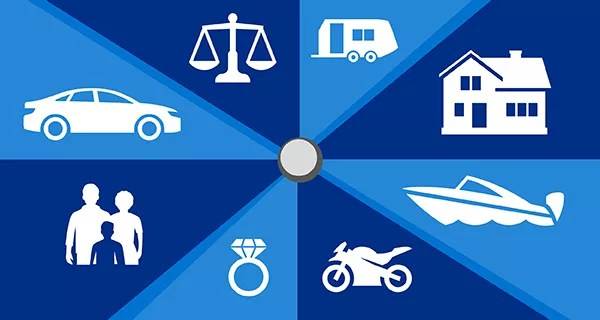Notes on
Definition and Types of Insurance Fraud in Ghana
Insurance fraud is a significant
challenge faced by the insurance industry in Ghana. It involves deceptive
actions by individuals or organizations to gain financial benefits to which
they are not entitled. Fraud undermines the insurance sector, leading to increased
premiums for honest policyholders and financial losses for insurers.
Understanding the definition and types of insurance fraud is essential to
combating its prevalence and safeguarding the industry.
1.
Definition of Insurance Fraud
General
Definition
Insurance fraud refers to deliberate acts
of deception committed with the intent to secure unfair or unlawful gains from
an insurance policy. These acts can occur at any stage of the insurance
process, including during application, policy maintenance, or claims
submission.
Legal
Definition in Ghana
The Insurance Act, 2021 (Act 1061)
addresses fraudulent activities in the insurance sector. It criminalizes:
- Misrepresentation of information to secure a policy or
reduce premiums.
- False or exaggerated claims to receive compensation.
2. Key
Features of Insurance Fraud
- Intentional Deception: The act
must be deliberate and not an honest mistake.
- Financial Gain: Fraud typically aims to secure
monetary benefits or avoid financial obligations.
- Violation of Policy Terms: Fraudulent
acts breach the contractual obligations between the insurer and the
insured.
3. Types
of Insurance Fraud
A.
Policyholder Fraud
This occurs when individuals or
businesses misrepresent information or fabricate claims to gain undeserved
benefits. Examples include:
- Application Fraud:
- Providing false information about age, health, or
occupation to secure lower premiums.
- Underreporting risks, such as the true value of
insured property or the nature of business activities.
- Claims Fraud:
- Exaggerating the extent of damages to receive higher
compensation.
- Submitting fake invoices or documents to support a
claim.
- Staging accidents or thefts to create a basis for
claims.
- Life Insurance Fraud:
- Faking death to claim life insurance benefits.
- Concealing pre-existing medical conditions when
applying for coverage.
B. Insurer
Fraud
Fraudulent activities perpetrated by
insurance companies or their employees include:
- Claims Denial Fraud:
- Unjustly denying legitimate claims to avoid payouts.
- Premium Theft:
- Collecting premiums without providing valid insurance
coverage.
- Misrepresentation of Policy Terms:
- Selling policies under false pretenses or providing
misleading information to policyholders.
C.
Intermediary Fraud
Brokers, agents, or third-party
intermediaries may engage in fraudulent acts, such as:
- Fake Policies:
- Issuing counterfeit policies and pocketing premiums.
- Premium Embezzlement:
- Misappropriating funds collected from policyholders
instead of remitting them to insurers.
D.
Third-Party Fraud
This involves individuals or entities not
directly part of the insurance contract. Examples include:
- Staged Accidents:
- Colluding with others to create fraudulent scenarios,
such as car accidents or workplace injuries.
- Fraudulent Service Providers:
- Inflating repair costs or medical bills to maximize
payouts.
E. Cyber
Insurance Fraud
As Ghana’s insurance industry becomes
more digitized, cyber fraud is emerging as a significant threat. Examples
include:
- Hacking and Data Breaches:
- Manipulating digital records to fabricate or alter
claims.
- Phishing Scams:
- Impersonating insurers to collect personal
information and commit identity theft.
4.
Specific Areas of Prevalence in Ghana
- Motor Insurance Fraud:
- Most common type of fraud in Ghana, often involving
staged accidents or falsified vehicle valuations.
- Health Insurance Fraud:
- Submitting fake medical bills or overbilling by
healthcare providers to exploit health insurance schemes.
- Property Insurance Fraud:
- Exaggerating fire or flood damage to receive higher
compensation.
- Agricultural Insurance Fraud:
- Misrepresenting crop losses or livestock fatalities
to claim payouts from agricultural insurance programs.
5. Impact
of Insurance Fraud on Ghana’s Economy
- Increased Premiums:
- Fraudulent claims drive up operational costs for
insurers, leading to higher premiums for policyholders.
- Erosion of Trust:
- Public confidence in the insurance industry declines,
reducing penetration rates.
- Financial Losses:
- Insurers bear significant financial burdens, reducing
their ability to invest and expand services.
- Regulatory Challenges:
- Combating fraud diverts resources from other critical
regulatory functions.
6.
Combating Insurance Fraud in Ghana
Detection
Measures
- Data Analytics:
- Use of predictive analytics to identify suspicious
patterns in claims and applications.
- Fraud Reporting Systems:
- Establishing hotlines or platforms for reporting
fraudulent activities anonymously.
Prevention
Measures
- Public Education:
- Raising awareness of the consequences of insurance
fraud.
- Technological Integration:
- Leveraging blockchain and artificial intelligence
(AI) to enhance transparency and fraud detection.
- Collaboration:
- Cooperation among insurers, regulators, and law
enforcement to share information and tackle fraud collectively.
Legal
Enforcement
- The Insurance Act, 2021 provides a legal basis
for prosecuting fraudsters, with penalties including fines, imprisonment,
or both.
- The National Insurance Commission (NIC) monitors
compliance and investigates fraud cases.
7.
Conclusion
Insurance fraud in Ghana is a
multifaceted issue that affects all stakeholders in the industry. By
understanding the various types of fraud, stakeholders can implement targeted
measures to mitigate its impact. Strengthening legal frameworks, investing in
technology, and fostering collaboration are critical steps in combating fraud and
ensuring the long-term stability and growth of Ghana’s insurance sector.


